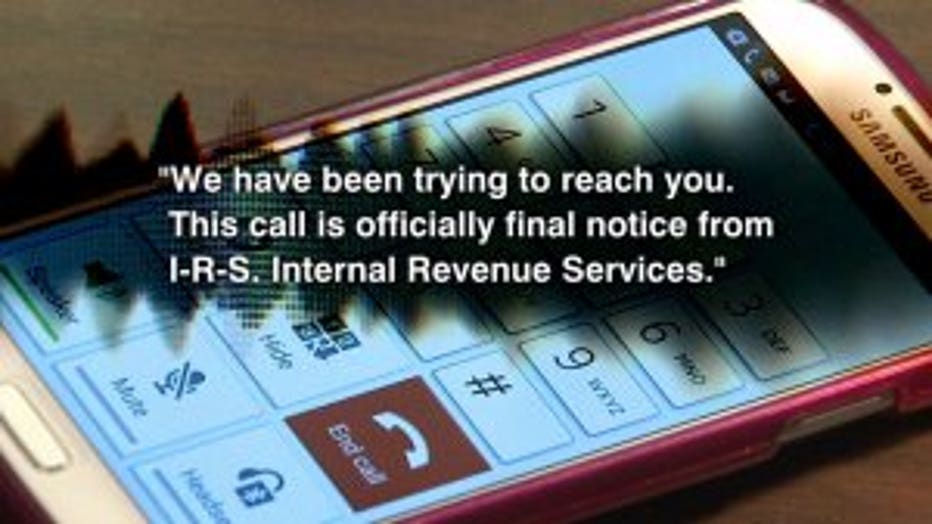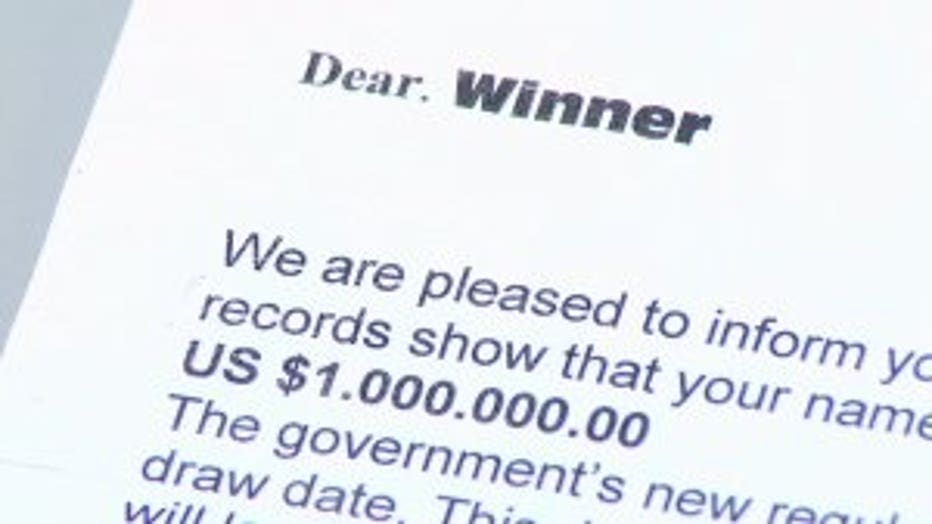Protect yourself: Scams to be on the lookout for in 2016
MILWAUKEE — Holiday season is in full swing and soon we'll be ringing in the new year. You may or may not have a resolution ready, but scammers have stealing from you on the top of their resolution list. Luckily, no matter how creative they get scams tend to look the same. In 2016, there's certain scams you should be on the look out for.

A phone call from the IRS is a scam. If you get one, just hang up!
The first scam is The IRS Scam. It starts with a call from someone pretending to be from the IRS. The call claims you owe money to the government and, often times, threatens legal action. They're trying to get you to hand over personal information. However, the call is not from the IRS.
"The IRS does not call people on the telephone about their tax bill and we don't use threatening or angry or harassing language," explains Christopher Miller, a spokesman for the IRS.
In fact, no government agency will call you. So, don't give out your information — just hang up. If you get one of these calls, you can report it HERE.
The second scam is known as The Grandparent Scam, but you don't need to be a grandparent to be a victim.

The Grandparent Scam starts with a call from someone impersonating a loved. They're quick to ask you to wire money. Don't do it!
It's a call or e-mail from someone claiming to be your relative. The scammers use scare tactics impersonating a loved one who is hurt or in jail. They want you to wire money as fast as you can. But, you shouldn't send money.
If anyone contacts you out of the blue needing money — relative or not — it's most likely a scam. If you're worried a loved one is in trouble, try reaching out to them before sending cash.
The final scam to look out for in 2016 is The Sweepstakes Scam. It's one of the oldest scams out there, but scammers are still using it.
This scam comes in many forms like letters, phone calls and e-mails. But, they all have one thing in common.
"The initial contact is you've won the lottery. Now, you have to pay fees in order to get the money," says U.S. Postal Inspector Alexander Sylvester.

The Sweepstakes/Lottery Scam claims you've won money or prize, but need to pay a fee first. No legitimate lottery or sweepstakes will ask you to pay money to win.
No legitimate lottery or sweepstakes will ask you to pay money to win money or any other prizes.
If you want to be prepared in 2016, CLICK HERE. Contact 6 created a tip sheet to help protect you.

